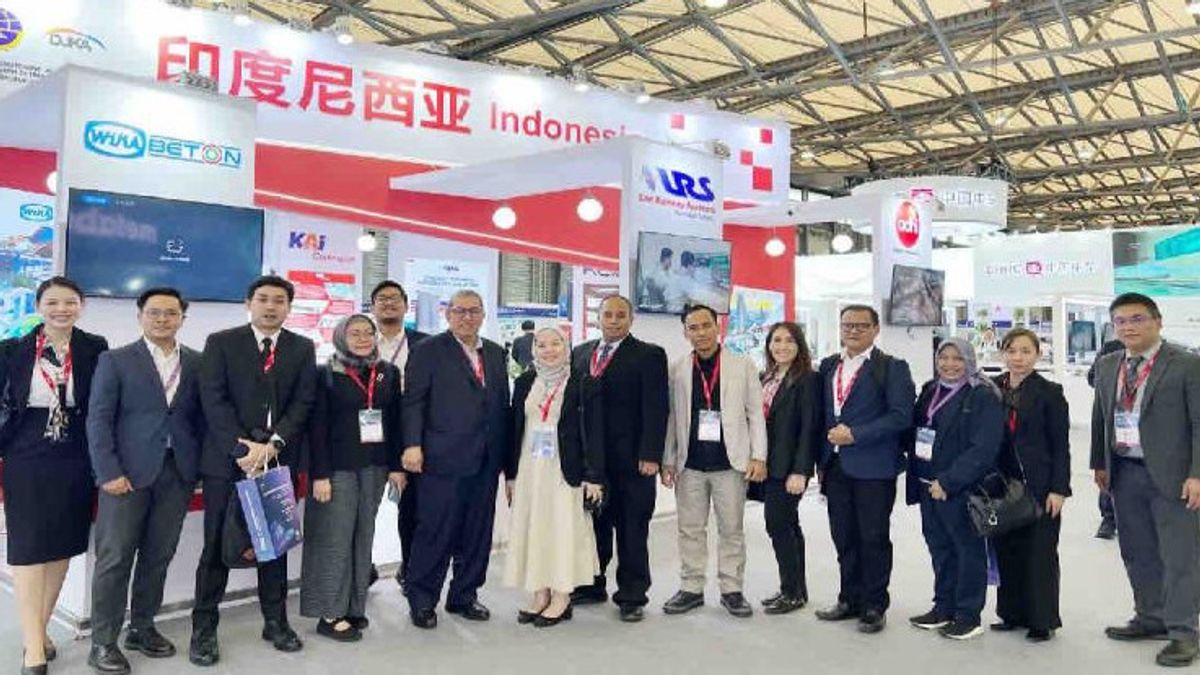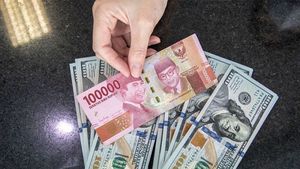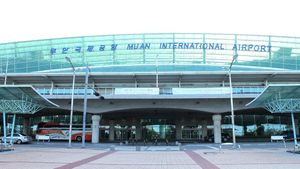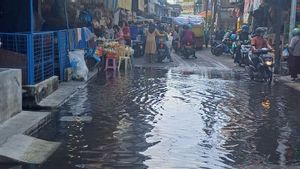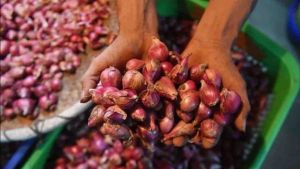The Directorate General of Railways of the Ministry of Transportation (Kemenhub) offered plans for the development of the Bandung urban train (KA) to investors while participating in exhibitions in China.
"The Bandung Urban KA was chosen as one of the projects offered considering its very strategic role in accommodating the high mobility of the community," said Director General of Railways at the Ministry of Transportation Risal Wasal in a statement in Jakarta, quoted from Antara, Tuesday, June 11.
The Directorate General of Railways of the Ministry of Transportation offered plans for the development of the Bandung Urban Railway (KA) at the 17th Shanghai International Exhibition of Intercity and Urban Mass forum and exhibition, Rail+Metro China 2024 on June 5 7 in Shanghai, China.
In addition to the Bandung Urban Train, IKN Airport Trains and urban trains are also offered to forum participants as potential projects to cooperate.
He said that the three projects were part of the Strategic Plan of the Directorate General of Railways 2024-2029.
"In realizing the target for the next Strategic Plan, we open up opportunities for together to maximize the development of Indonesia's railway sector, including three projects with high economic potential," said Risal in a presentation entitled Foreseeing Indonesia: A Rail-Based Emerging Power.
He explained that the Bandung Urban Train was chosen as one of the projects offered considering its very strategic role in accommodating the high mobility of the community, as well as connecting the Rail Ceiling service with economic activity centers in metropolitan areas.
In this case, continued Ridal, the Bandung urban train project is projected to have an investment return rate (IRR) ratio of 11.9 percent and feasibility support for part of the cost (viability gap fund) of 49 percent.
"With this huge potential, we open up opportunities to participate in the Bandung Urban Train project through a government-business cooperation scheme (PPP) with a concession period of up to 30 years," said Risal.
Furthermore, related to the development of rail transportation in the Nusantara State Capital (IKN) area, Risal said that currently there are still two project plans that are still open to investment cooperation.
The two projects include the Sepinggan Airport - IKN Train, as well as the IKN Urban Train which will serve the people in the new area.
He explained that the Sepinggan-IKN Airport Train line will serve 5.2 million passengers per year by 2030, and cut the travel time by only 30 minutes for a distance of 46.04 km.
This railway line will also go through the economic centers of East Kalimantan so that it is hoped that it can become a catalyst for the growth of this region.
"Meanwhile, the IKN Urban Train route is expected to connect this new capital area with surrounding cities such as Balikpapan so as to facilitate community mobility between the two cities," he said.
In order to support the IKN Urban Train development plan, Risal said that the Government is ready to provide support in the form of land acquisition and provision of a viaability gap fund (VGF) of 49 percent of the total investment value.
SEE ALSO:
At 17th Shanghai International Exhibition of Intercity and Urban Mass, China's Rail+Metro 2024, DJKA also invited stakeholders and railway industry players to participate in offering superior products and services from each company.
The business entities that DJKA collaborated with for this activity were PT. Adhi Karya Tbk, PT Wijaya Karya Beton Tbk, PT Kereta Cepat Indonesia China, PT. Kereta Commuter Indonesia, PT Celebes Railway Indonesia, and PT Len Railway Systems.
In addition to exhibitions and forums, the Director General of Railways and delegates from Indonesia also visited the Shanghai Engineering Research Center of Driverless Train Control of Urban Guided Transport and Tongji University.
"This is a good opportunity for us to learn and develop the Indonesian railway sector so that it can become a new force built on the railroad tracks (rail-based emerging power)," said Risal.
The English, Chinese, Japanese, Arabic, and French versions are automatically generated by the AI. So there may still be inaccuracies in translating, please always see Indonesian as our main language. (system supported by DigitalSiber.id)
